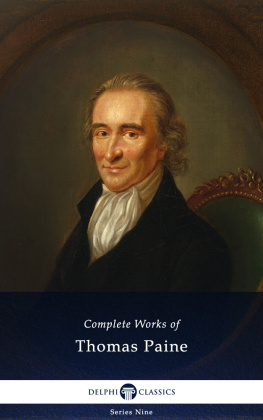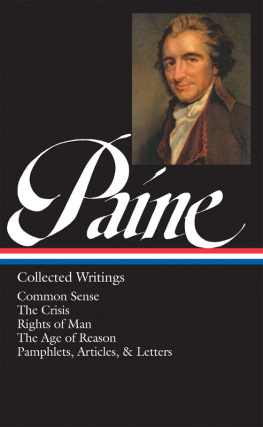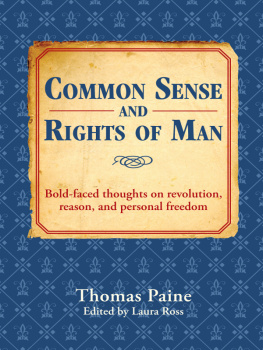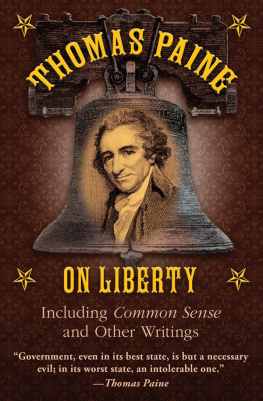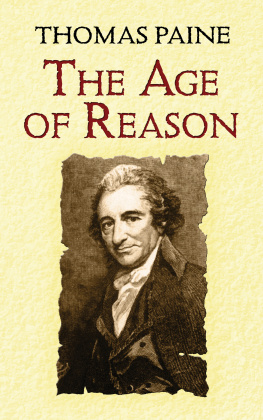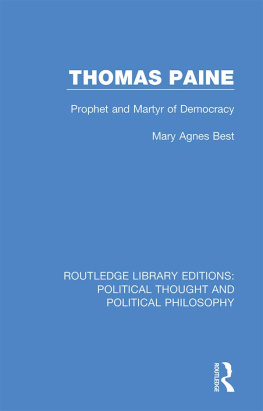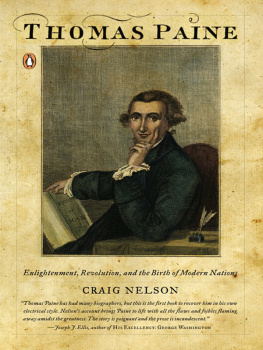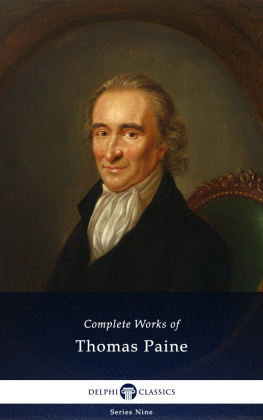
The Complete Works of
THOMAS PAINE
(1737- 1809)

Contents

Delphi Classics 2018
Version 1


Browse our Main Series

Browse our Ancient Classics

Browse our Poets

Browse our Art eBooks

Browse our Classical Music series

The Complete Works of
THOMAS PAINE

By Delphi Classics, 2018
COPYRIGHT
Complete Works of Thomas Paine

First published in the United Kingdom in 2018 by Delphi Classics.
Delphi Classics, 2018.
All rights reserved. No part of this publication may be reproduced, stored in a retrieval system, or transmitted, in any form or by any means, without the prior permission in writing of the publisher, nor be otherwise circulated in any form other than that in which it is published.
ISBN: 978 1 78656 114 5
Delphi Classics
is an imprint of
Delphi Publishing Ltd
Hastings, East Sussex
United Kingdom
Contact: sales@delphiclassics.com

www.delphiclassics.com
Other classic Non-Fiction eBooks available

These comprehensive editions are beautifully illustrated, featuring rare works and offering eReaders some of the greatest non-fiction works ever written.
Explore Non-Fiction at Delphi Classics
The Books

Thetford, a market town in Norfolk, England Paines birthplace

The Thomas Paine Hotel in Thetford, traditionally ascribed as the authors birthplace

Statue of Paine in Thetford
Common Sense

THIRD EDITION TEXT
Published anonymously on 10 January 1776, this pamphlet advocates independence from Great Britain to people in the Thirteen Colonies. Written in clear and persuasive prose, Paine develops moral and political arguments to encourage common people in the Colonies to fight for egalitarian government. Written at the beginning of the American Revolution, Common Sense became an immediate sensation, which was distributed widely and read aloud at taverns and meeting places. In proportion to the population of the colonies at that time (2.5 million), it had the largest sale and circulation of any book published in American history.
Common Sense projects a persuasive and impassioned case for independence, which had not yet been given serious intellectual consideration. Paine connects independence with common dissenting Protestant beliefs as a means to present a distinctly American political identity, structuring the pamphlet as if it were a sermon.
Paine had arrived in the American colonies in November 1774, just before the Battles of Lexington and Concord. Though the colonies and Great Britain had commenced hostilities against one another, the thought of independence was not initially entertained. Paine found the disposition of the people such, that they might have been led by a thread and governed by a reed. Their attachment to Britain was obstinate, and it was, at that time, a kind of treason to speak against it. Their ideas of grievance operated without resentment, and their single object was reconciliation.
Paine quickly immersed himself in the Philadelphia newspaper business, and began work on Common Sense in late 1775 under the working title of Plain Truth . Though it initially started as a series of letters to be published in various Philadelphia papers, it grew too long and unwieldy to publish in that format, and so Paine opted for the pamphlet form. The publisher Robert Bell enthusiastically promoted the pamphlet in Philadelphias papers, and demand grew so high that a second printing was needed. Paine, overjoyed with its success, tried to collect his share of the profits and donate them to purchase mittens for General Montgomerys troops, then encamped in frigid Quebec. However, when Paines chosen agents audited Bells accounts, they discovered that the pamphlet actually had made no profits.
Angered by this, Paine ordered Bell to cancel the second edition, as he had planned several appendices to add to the text. Bell ignored this and began advertising a new edition. In retaliation Paine secured the assistance of the Bradford brothers, publishers of the Pennsylvania Evening Post , and released his new edition, featuring several appendices and additional writings.
The publicity generated by the initial success and the publishing squabble further increased the widespread popularity of the pamphlet. For nearly three months, Paine managed to maintain his anonymity, even during Bells potent newspaper polemics. His name did not become officially connected with the independence controversy until 30 March 1776.
The first section of Common Sense concerns common Enlightenment theories of the state of nature, proposing a foundation for republican government. Paine provides a distinction between society and government, arguing that government is a necessary evil. He illustrates the power of society to create and maintain happiness in man through the example of a few isolated people that find it easier to live together rather than apart, creating society. As society continues to grow, a government becomes necessary to prevent the natural evil present in man. In order to promote civil society through laws and account for the impossibility of all people meeting centrally to make laws, representation and elections become necessary. As this model was clearly intended to mirror the situation of the colonists at the time of publication, Paine went on to analyse the Constitution of the United Kingdom.
Next page
